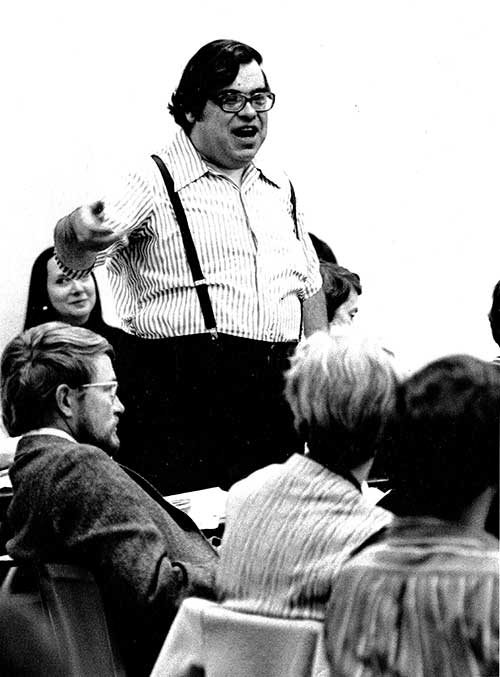The Story of the Block Plan: The Podcast
Episodes
Chapter One: Beginnings
It is September 16, 1969—the fall after the summer of love—when Professor Glenn Brooks steps up to the podium to give a Convocation address unveiling the “New College Plan” to the students of Colorado College for the first time. Over the past several months, Brooks has been on a special assignment given him by Lew Worner, then President of the College, to find some way of not just celebrating the 100th anniversary of the college but changing it in some way. There is excitement in the air, but perhaps not all of Brooks’s faculty colleagues like the idea.
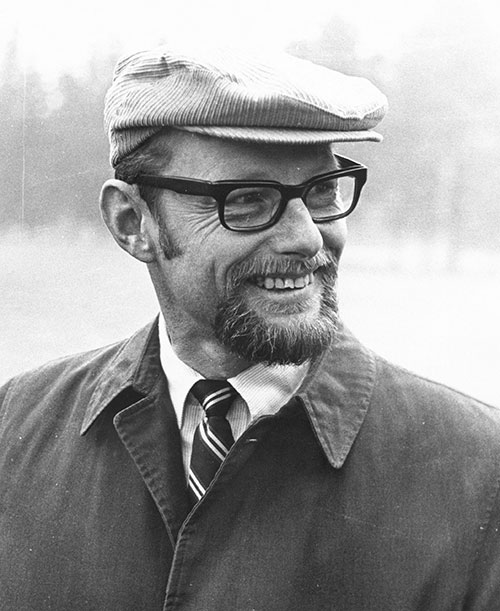
Chapter Two: The Lost Convocation Address
Hear for yourself the newly discovered tape of Professor Glenn Brooks’s lost Fall Convocation address of 1969 when he described the idea that would become the Block Plan to the students of Colorado College. What problems was the Plan meant to solve? What changes would it mean for CC? What was the “crisis of time in the life of the student” at the core of the Plan’s founding?
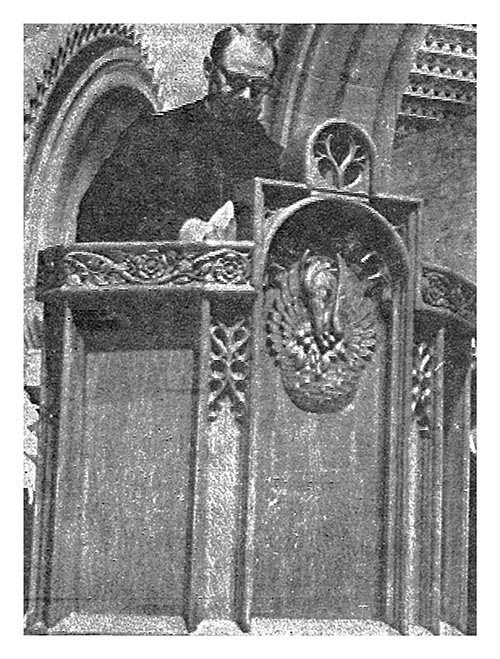
Chapter Three: Back to Benezet
The search for the origins of the idea of the Block Plan, and the institution that would adopt it takes us back to 1955 when then newly-named CC President Louis Benezet arrives at Colorado College to find it at something of a standstill. Faculty salaries are abysmally low, no new buildings built for decades. The quest to improve things starts slowly, but then gets a shot in the arm when a signal from outer space gives the process a shot in the arm.
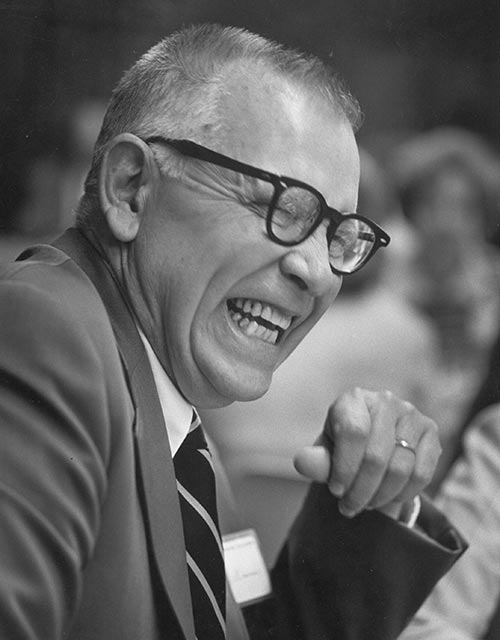
Chapter Four: The Sixties
The year is 1965, four years before Woodstock, but already the great interrogations of the 60s that would change the country—and higher education—are underway. On the CC campus enrollment is climbing, and students are demanding off campus housing, beer, and sweeping curricular reforms. Many of the proposed changes are turned back, not because they are too radical, but because they are not radical enough. This combination of discontent and defeated reforms leads to a decision by Professor Brooks to form a “Committee of the Whole” that would be composed, literally, of everyone in campus. “What do you need to do a better job?” was the question he asked. How does this question lead to the radical idea that we now know as the Block Plan?
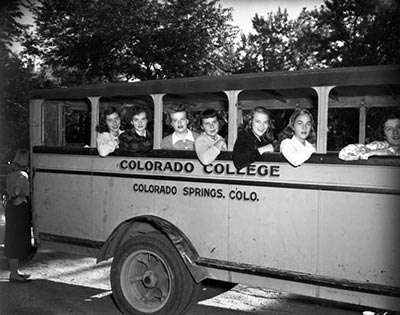
Chapter Five: What Happened at Murphy’s
Having nearly finished his self-study of Colorado College, Glenn Brooks is faced with the difficult question of what to do. There are a lot of options, many suggestions on the table, but no clear path ahead. In the midst of such uncertainty he happens to go to Murphy's Bar in Colorado Springs on a gloomy November afternoon in 1968 for a much mythologized beer with two colleagues. One of them makes a suggestion that will point the way forward. Go behind the scenes of the Block Plan Documentary as we ask, what really happened at Murphy’s? What was said that day that would make it seem like a turning point on the road to the Block Plan?
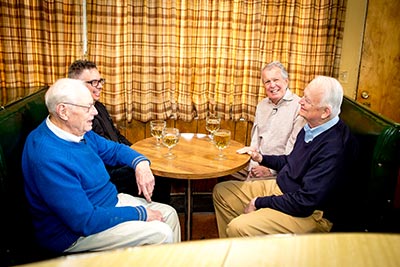
Photo by Bryan Beasley
Chapter Six: “The Planning Office”
Professor Brooks pitches the idea of “unified learning” to the President and Dean and gets the go ahead to start to "tinker with the course calendar" and see what might be possible. With Elaine Freed as his assistant, he opens the “Planning Office” in the basement of Armstrong and gets to work. They don’t get far before they discover Hiram College in Ohio--once the "happiest college in the land"--who have just abandoned their own “one course at a time” plan.
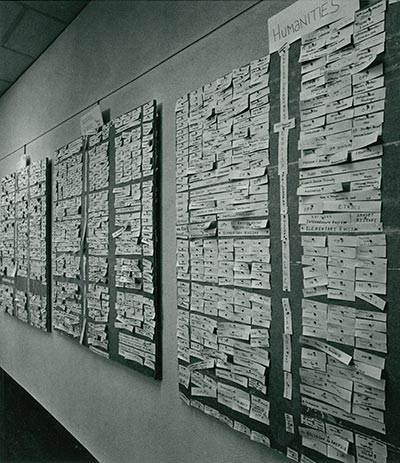
Chapter Seven: "Drucker, Dionysius, and a Leap Forward”
Progress towards implementing the New College Plan moves slowly at first, but then is spurred by a unexpectedly controversial performance on campus that pulls the campus together. All the same, Brooks sees that students and faculty are having a hard time seeing the plan as something they might actually adopt—as opposed to something that might theoretically be possible. He takes several steps to make the Plan seem as concrete as possible, as soon as possible. But will it be enough?
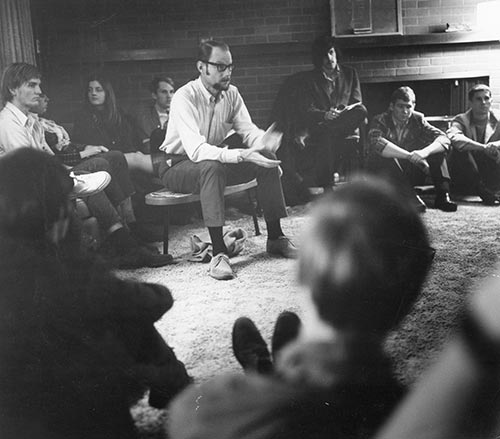
Chapter Eight: The Thing Passed
Having distributed three reports to the faculty outlining his New College Plan over the course of the summer, Brooks braces for the Fall Faculty Forum when the subject to be discussed and debated for that year is the Plan itself. He expects disagreements, much debate—which is not what happens. Pressing forward, he delivers the Fall Convocation Address announcing the Plan publicly to the students and staff of Colorado College and gets blowback for his use of “strong language.” A few weeks later, just before the historic vote, a strategic error gets him further into hot water. An alternate plan emerges. Will the Block Plan survive the faculty vote?
